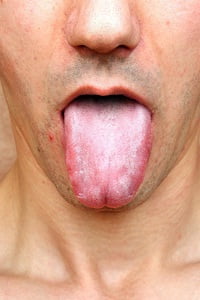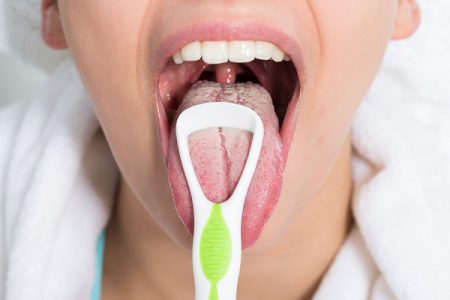What are the Causes of Dry Mouth (Xerostomia)
- Updated on: Jul 9, 2024
- 2 min Read
- Published on Apr 19, 2021

What causes dry mouth?
Dry mouth is not just feeling thirsty. You get it when your mouth makes very little saliva or none at all. Sometimes, the little saliva that your glands produce might be thick and stringy.
Dry mouth is a common oral problem that can occur when the salivary glands in your mouth don’t produce enough saliva.
There are many reasons for why your mouth can become dry. But one of the reasons is dehydration. If you don’t take enough fluid in your body to produce the saliva you need, dehydration may happen which can lead to dry mouth. It’s also common for your mouth to become dry if you’re feeling stresses or nervous. Read here about how anxiety can cause dry mouth.
Sometimes, a dry mouth can sometimes be caused by an underlying problem or medical condition.
The various causes of dry mouth are discussed here briefly.
Side effect of certain medications
Dry mouth is a common side effect of many medicines such as those used for depression, allergies, colds, anxiety, pain, obesity, epilepsy, hypertension, diarrhea, nausea, psychotic disorders, urinary incontinence, asthma, and Parkinson’s disease, etc. Certain muscle relaxants and sedatives can also cause dry mouth.
Side effect of certain diseases and infections
Dry mouth can be a side effect of certain medical conditions such as Sjögren’s syndrome, HIV/AIDS, Alzheimer’s disease, diabetes, arthritis, hypertension, anemia, cystic fibrosis, Parkinson’s disease, and stroke.
Side effect of certain treatments
There are some therapies and surgeries that can cause damage to your salivary glands. This can reduce the amount of saliva produced by them as a result of the damage. For example, in some cases, radiation to the head and neck, and chemotherapy treatments for cancer can damage the glands that produce saliva. This can cause dry mouth.
Dehydration
Dehydration can occur due to such as fever, sweating, blood loss, vomiting, diarrhea, and burns. Excessive dehydration can cause dry mouth.
Damage of the nerves
A damage of the nerve in head or neck area due to an injury or surgery can cause dry mouth.
When the salivary glands are surgically removed
If there are no salivary glands in the body, there is no production of saliva. This causes dry mouth.
Lifestyle
Activities such as smoking or tobacco use can affect saliva production, which may cause or worsen the dry mouth condition. Breathing with your mouth open can also contribute to the problem.
Other causes of dry mouth
- aging
- using marijuana
- taking tranquilizers
- botulism poisoning
- poor oral hygiene
- overactive bladder
- mental health problems












